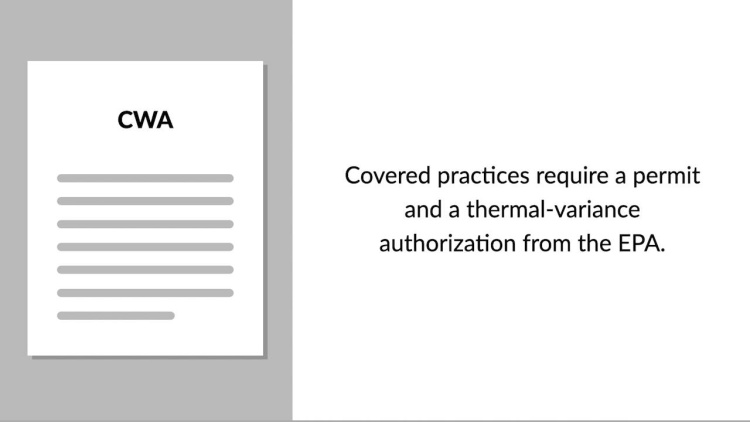Dominion Energy Brayton Point, LLC v. Johnson
United States Court of Appeals for the First Circuit
443 F.3d 12 (2006)
- Written by Kathryn Lohmeyer, JD
Facts
For 30 years, the Environmental Protection Agency (EPA) (defendant) had issued a series of National Pollution Discharge Elimination System (NPDES) permits under the Clean Water Act (CWA), 33 U.S.C. §§ 1251-1387. These permits authorized Dominion Energy Brayton Point, LLC (Dominion) (plaintiff) to use a cooling system for its electrical plant. The plant’s cooling system pulled water from two rivers and discharged warmed water into a bay. The standards in the NPDES permits were set according to the thermal-variance procedures outlined in § 316(a) of the CWA. After Dominion applied to renew its NPDES permit in 1998, the EPA issued a proposed final NPDES permit in 2003 that rejected the plant’s requested thermal variance. The EPA issued a final rule eliminating formal evidentiary hearings from the NPDES permitting process. Dominion petitioned for review by the EPA’s Environmental Appeals Board (Board), which granted the petition but denied Dominion’s request for an evidentiary hearing. Dominion filed suit against the EPA in federal district court, arguing that the EPA was required to grant its request for a formal evidentiary hearing. The district court dismissed the case. Dominion appealed to the United States Court of Appeals for the First Circuit, seeking a determination that the EPA was required by First Circuit precedent to grant the requested hearing.
Rule of Law
Issue
Holding and Reasoning (Selya, J.)
What to do next…
Here's why 907,000 law students have relied on our case briefs:
- Written by law professors and practitioners, not other law students. 47,100 briefs, keyed to 996 casebooks. Top-notch customer support.
- The right amount of information, includes the facts, issues, rule of law, holding and reasoning, and any concurrences and dissents.
- Access in your classes, works on your mobile and tablet. Massive library of related video lessons and high quality multiple-choice questions.
- Easy to use, uniform format for every case brief. Written in plain English, not in legalese. Our briefs summarize and simplify; they don’t just repeat the court’s language.





